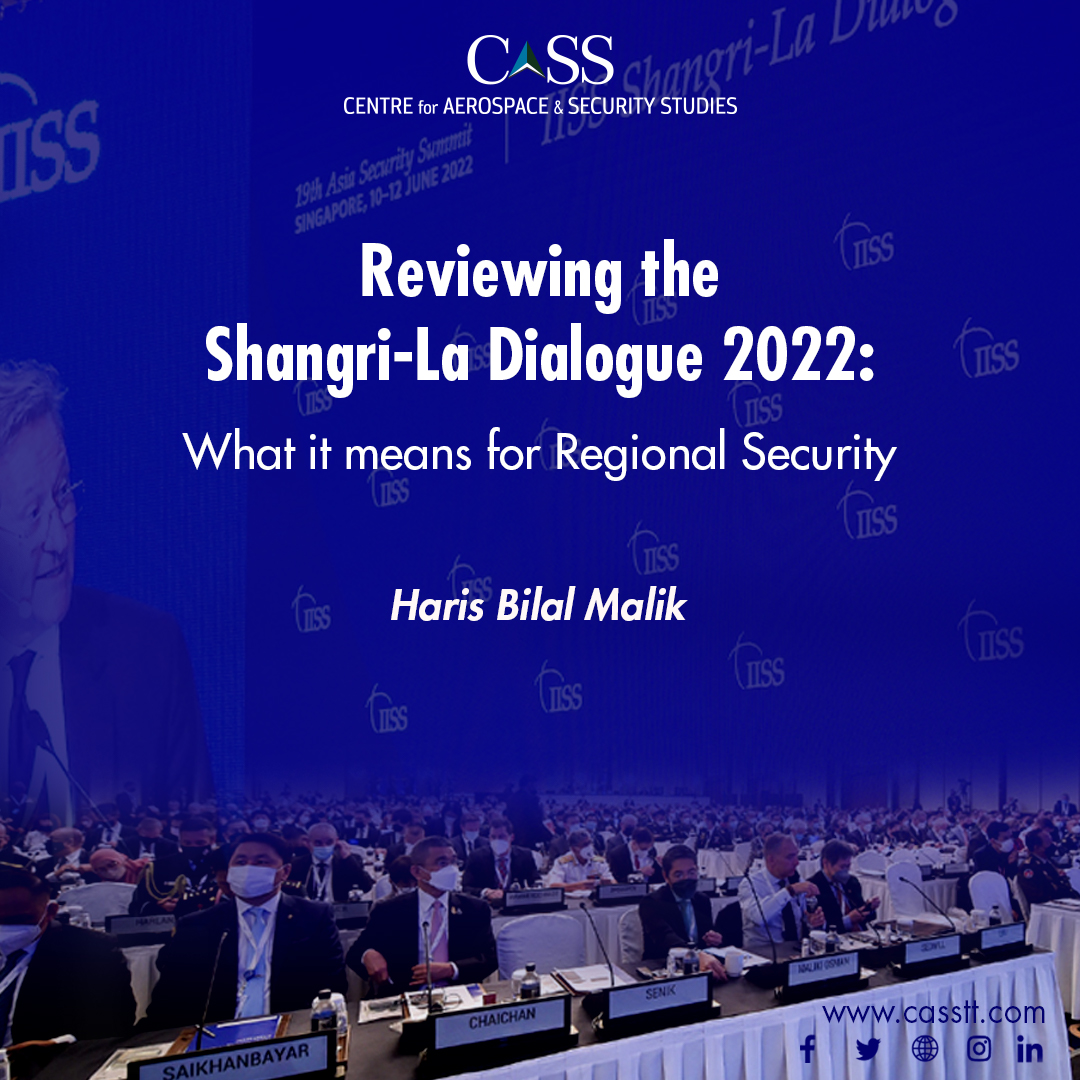The 19th IISS Shangri-La Dialogue (SLD), one of the premier defence and security dialogues related to the Indo-Pacific region, was recently held in Singapore from 10-12 June 2022. The dialogue, organised by the International Institute of Strategic Studies (IISS), London, was held after a gap of two years due to the COVID-19 pandemic. This year’s dialogue was significant in many ways, especially given the international security environment dominated by the Russia-Ukraine war, United States-China strategic competition in the Indo-Pacific region, and US engagements with countries like India in the broader regional context, just to mention a few.
The SLD serves as an important forum for countries like the US and China to share their visions and policies vis-à-vis key regional and international security issues. This year, India’s presence as an important regional player was also very prominent. Since the announcement of the US’ Indo-Pacific Strategy which identifies China as a ‘strategic competitor’ and under which India is seen as an important partner and regional player in the Indo-Pacific region, the engagement with India has increased exponentially. For instance, apart from increased economic cooperation, both countries have come closer to each other in defence, diplomacy, and regional security arrangements and partnerships. India is part of the Quadrilateral Security Dialogue (QUAD) mechanism, and one can argue that the US, renamed its largest Pacific Command ‘Indo-Pacific Command’ as a symbol to acknowledge and enhance Indian significance vis-à-vis the Pacific theater. This notion was very much prominent during this SLD as well. The US Secretary of Defense Lloyd J. Austin while giving his remarks at the Dialogue coddled India by saying that ‘Indian increasing military capabilities and technological prowess can be a stabilizing factor for the Indo-Pacific region’. In the same context, he also re-affirmed that the Indo-Pacific is a priority for US operations and the heart of the US’ Grand Strategy.
Deliberations about China’s increasing foothold in the region were also an important part of the statement given by the US Secretary of Defense. While being critical, he maintained that Beijing had adopted ‘a more coercive and aggressive approach to its territorial claims; and suggested that the ‘US would remain open to future diplomacy, and fully prepared to deter and defeat any future aggression.’ He specifically mentioned that China was ‘hardening its position vis-à-vis its border with India.’ This reference to India is important in the broader regional context where ‘China containment’ remains a primary objective. In this regard, he warned that Indo-Pacific states were ‘not supposed to face political pressures, economic coercion, and harassment by the maritime militias.’ He was apparently referring to tensions in the South China Sea and the East China Sea.
In this context, it is essential to analyse China’s stance vis-à-vis the US at the SLD. Chinese Minister for National Defense, General Wei Fenghe responded to the US Secretary of Defense’s statement in a similar tone. He asserted his country’s position as non-compromising, especially over the Taiwan issue, and stated that China would ‘definitely realise its reunification’ and not hesitate to fight back to the very end. He also maintained that the US had been trying to hijack countries in the Indo-Pacific region under the pretext of multilateralism but in reality, to target China.
The 2022 IISS SLD was an opportunity for both the US and China to openly express concerns about each other, particularly in the regional context. One may argue that since the US was more inclined towards criticising China, it deliberately lauded India and that too when the latter was officially absent from the Dialogue. This was evident as the Secretary of Defense acknowledged Indian relevance vis-à-vis the Indo-Pacific region while justifying its military modernisation. However, the Chinese stance was focused on openly criticising the US and its advancements in the region, especially, when both China and India are economically interdependent.
The US inclination towards India against the backdrop of its ongoing strategic competition with China, would further complicate the security environment of the Indo-Pacific region. Given this, New Delhi will be in a better bargaining position to further enhance its military capabilities, greater regional role, and economic clout, thus, making the region more prone to hostilities and conflicts in the future.
From the discussions at the Shangri-La Dialogue 2022, it is clear that US-India’s strategic relationship is significant and would likely improve in the coming years. In such circumstances, Pakistan needs to remain vigilant of the changing regional dynamics and of the actors that are encouraging and ensuring India’s dominance.
Haris Bilal Malik is a researcher at the Centre for Aerospace & Security Studies (CASS), Islamabad, Pakistan. The article was first published in Modern Diplomacy. He can be reached at cass.thinkers@gmail.com.




